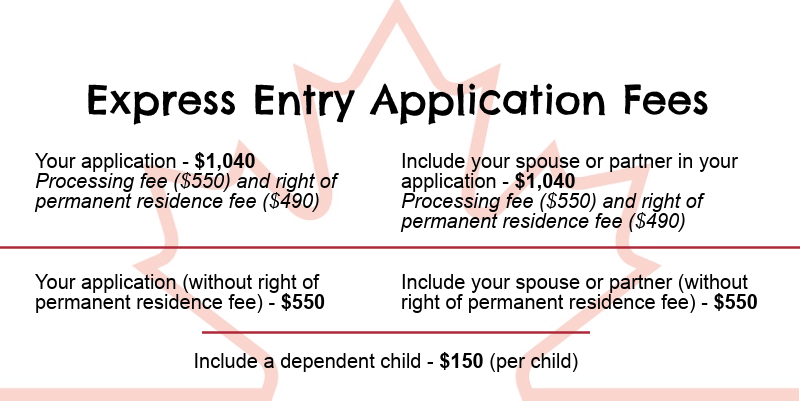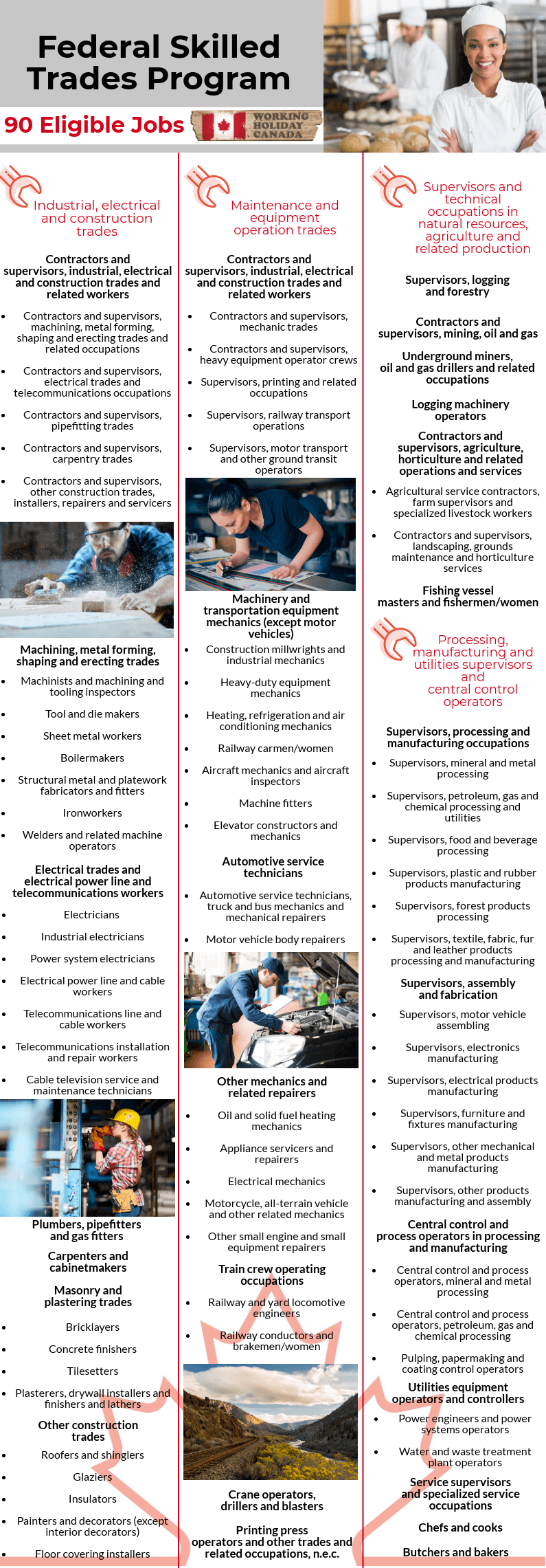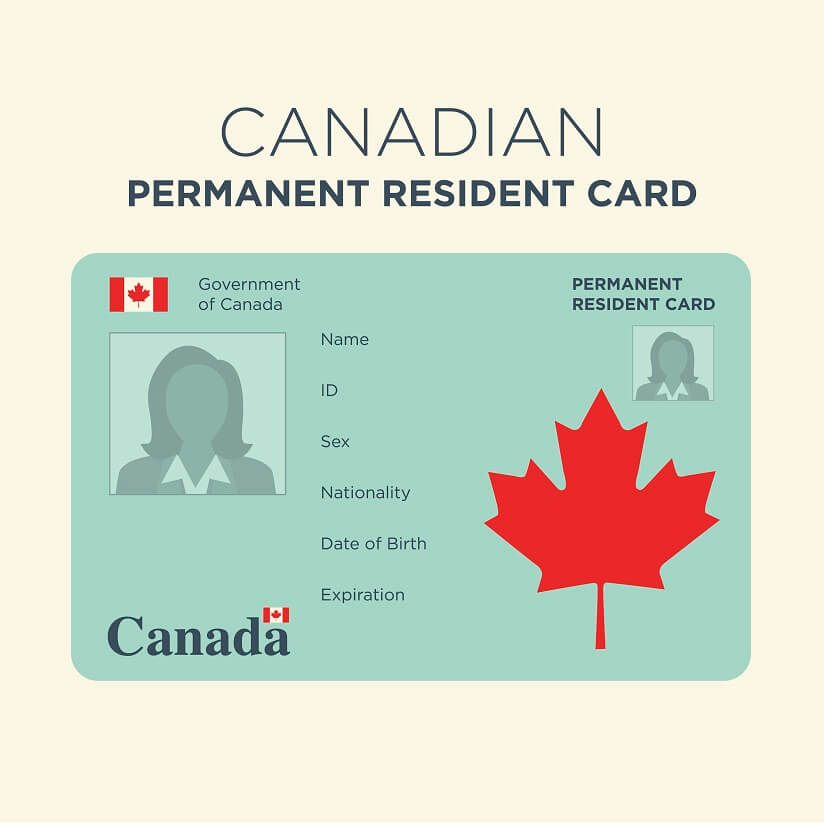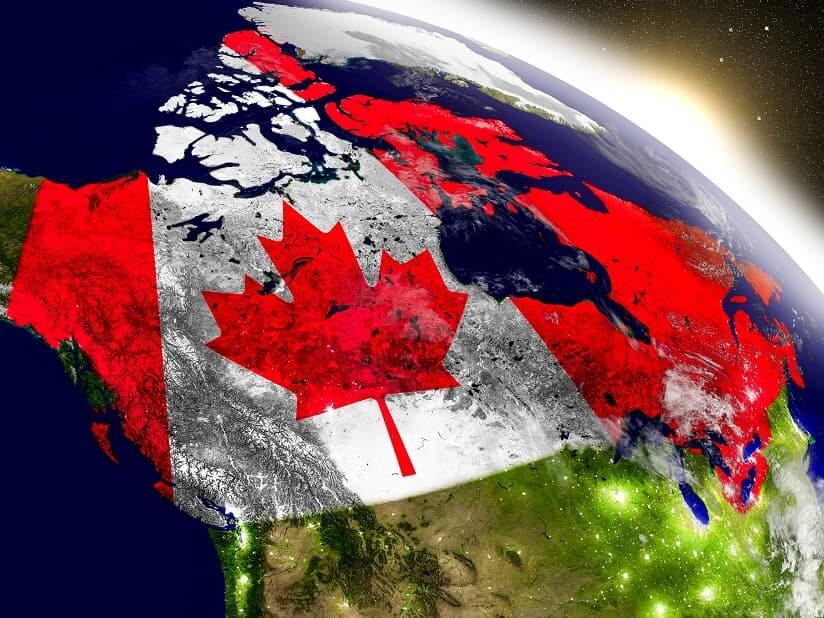Plus de 200,000 people become Canadian permanent residents every year.
So here’s the conundrum. You loved your working holiday in Canada and you want to stay there. But now your visa has expired.
How can you transform Canada from the holiday destination of a lifetime to your long-term place of residence?
Simple!
Canadian permanent residents enjoy almost all the same rights as regular citizens including healthcare coverage and the right to work, study, and travel anywhere in Canada.
But how can you become a Canadian permanent resident?
Here’s our guide to applying for permanent residency in Canada!
Before we begin, there are some preliminary factors to consider!
1 – Check if you are already a Canadian citizen!

Premières choses d'abord! Why waste timing applying for permanent residency when you’re already Canadian? Yes, there’s actually a test you can take to find out if you qualify as a Canadian citizen!
Perhaps you inherited the status, through a parent or grandparent, sans le savoir. Passer le concours!
2 – Are you over 18?
If you’re not over 18, il vous sera plus difficile d'obtenir la résidence permanente au Canada.
You’ll need your parent or legal guardian (a Canadian permanent resident who is either a Canadian citizen or applying to become one) to fill out an application for you.
3 – Beware! The application may take some time!
Don’t count on achieving permanent residency during your working holiday. It’s difficult to determine exactly how long it will take to complete the application process and become a permanent resident.
Understandably, this uncertainty can be frustrating if you’re in Canada on a working holiday and you want to keep working in the country after your current visa expires. Plus, there are never any guarantees that your application to become a permanent resident will be successful.
OK, now that we have that out of the way, let’s take a look at the various options available for you to become a Canadian permanent resident.
Express Entry

programme-piste rapide du Canada pour l'immigration est appelée « entrée express ». The system was designed specifically to help skilled workers to move into a role in the country.
Applications for Express Entry are all done online. Once you create your profile (valid for one year) you will be given a score (you must achieve a minimum score of 67/100) based on your language proficiency, education, et l'expérience de travail.
Votre score est alors classée par rapport aux autres candidats via un Comprehensive Ranking System (CRS) and those at the top of the rankings are invited (Invitation à postuler (ITA)) to become permanent residents.
![]()
Jane is 25 and from Ireland. She is fluent in English and has a basic knowledge of French. In 2014 she graduated from a university in Dublin with a Master’s Degree and she now has 2 years of paid work experience.
She also has a spouse who has studied, lived and worked in Canada. Taking all of these factors into account, it is likely that Jane would receive a score of 80 points or higher.
![]()
Once you receive an ITA, Tu vas avoir 60 days to complete your application (which includes health and security checks) for permanent residency. If you are not invited to apply, don’t worry. You can renew your profile and return to the candidate pool for another 12 months.
The majority of applications are processed in under six months. Applicants may also be selected by a Canadian employer for a position, as long as the employer can show they can’t find a suitable Canadian or permanent resident.
Il existe trois programmes d'immigration distincts sous express Entrée - « travailleurs qualifiés », ‘Federal Skilled Trades’, and ‘Canadian Experience Class’.
1) Federal Skilled Workers
Ce programme est pour les candidats qui travaillent dans l'une des principales professions (graphic below) that are in demand in Canada.
Ce programme est limité à 25,000 visas per year (all nationalities). Although, if you have a job offer, you can still qualify even if the quota has been filled.
To apply you must have at least one year of paid work experience and fulfil certain criteria (such as a language test). You must also have your qualifications assessed by an independent accreditor (for an additional fee).

2) Federal Skilled Trades
Each year 5,000 visas are available for individuals who are trained in one of 90 skilled trades that are in demand (graphic below).
Pour appliquer dans ce programme, vous devez avoir au moins deux ans d'expérience de travail rémunéré (in the previous five years) and have either a job offer for a full year or a certificate of qualification.

3) Canadian Experience Class (CEC)
Ce programme offre 8,000 permanent residency visas to applicants who have at least 12 months’ skilled work experience in Canada in the three years before they apply.
Pour vous qualifier, vous devez passer un test de langue et médicale.
It takes six months to process but it is possible to get a bridging visa until the CEC is issued.
Express Entry not for you? Here are some other options to consider
1) Provincial Nominee Programme (PNP)
Ce programme est une excellente option si vous avez une province à l'esprit que vous souhaitez Immigrer et se installer.
Applicants must contact the representative immigration office within their preferred province and apply for a nomination to that province.
2) Family Class Immigration
If you have any members of the close family that are permanent residents in Canada, they may be able to help you obtain permanent residency. en fait, approximately 30% of all immigrants that come to Canada are sponsored by family members.
3) Business Immigration Programme
Paysage torontois, experienced investors and entrepreneurs.
If you are a self-employed applicant, you must have the experience, intention, et la capacité de créer une entreprise qui créera une offre d'emploi pour vous-même et qui apportera une contribution importante aux activités culturelles ou sportives au Canada.
Or alternatively, you can choose to purchase and manage a farm.
Investors must demonstrate a number of requirements including their business experience, a legally obtained net worth of C$800,000 and their intention to invest C$400,000 in the Canadian economy.
Entrepreneurs are also required to demonstrate business experience in owning and managing businesses or in owning a share or percentage of an enterprise.
Their net worth must also be C$300,000, et ils doivent être prêts à gérer et d'exploiter une entreprise et créer au moins un emploi à temps plein (in addition to their own) within three years of becoming a permanent resident.
FAQ sur la résidence permanente au Canada
Q: I have just become a permanent resident of Canada. Do I now need to apply for a permanent resident card?

A: No! This will be sent to you automatically. However, you must submit your Canadian mailing address within 180 days of the day you become a permanent resident in order to receive your card.
Q: How much does it cost to become a Canadian permanent resident?
A: There are a number of fees to consider when you apply for permanent residency through the express entry system.
Fees
- Your application – $1,040
Processing fee ($550) and right of permanent residence fee ($490) - Include your spouse or partner – $1,040
Processing fee ($550) and right of permanent residence fee ($490) - Include a dependent child – $150(per child)
Q: This application process sounds difficult. Wouldn’t it just be easier if I married a Canadian citizen? Then I would become a Canadian citizen myself!

A: No! This is incorrect. Marrying a Canadian citizen doesn’t give you citizenship, or even permanent residency. Also, il n'y a pas la citoyenneté particulière ou du processus de demande de résidence permanente pour les conjoints de citoyens canadiens.
However, your Canadian spouse can sponsor you to become a permanent resident if you:
- don’t live in Canada or
- aren’t a permanent resident
Q: Que se passe-t-il si ma demande de résidence permanente au Canada est refusée?
A: You can apply again! There is no waiting period before you can reapply. However, you should make sure you meet the requirements for Canadian permanent residency before you reapply.
Q: How long must I stay in Canada to keep my permanent resident status?
Conditions de résidence
Pour conserver votre statut de résident permanent au Canada, vous devez y vivre pendant au moins deux ans (not necessarily continuous) within a five-year period. During this time you must be physically in the country.
Time spent outside Canada may also count if you are:
- travelling with your spouse or partner who is a Canadian citizen,
- a dependent child travelling with your father or mother who is a Canadian citizen,
- an employee of (or under contract to) a Canadian business
- travelling with your spouse or partner who is a permanent resident and works full-time for:
– a Canadian business, or
– the public service of Canada or a province - a child travelling with their father or mother who is a permanent resident and who works full-time for:
– a Canadian business, or
– the public service of Canada or a province - an employee of (or under contract to) the public service of Canada or a province and you are on a full-time assignment to:
– a position outside Canada,
– a partner business outside Canada, or
– a client of the Canadian business or the public service outside Canada
Losing your status
Certains actes pourraient vous faire perdre votre Statut de résidence au Canada y compris commettre un crime grave
Permanent residents are not afforded the same protections and privileges under Canadian law as Canadian citizens. In other words, you may be subject to removal if you commit a criminal act.
Tu pourrais aussi aimer:
Le programme Expérience internationale Canada s'ouvre aux demandes de visa pour le 2021 saison!
Qu'est-ce que le formulaire TD1 et pourquoi ai-je besoin?
Conseils pour passer votre première semaine à Vancouver en tant que travail Holidaymaker





